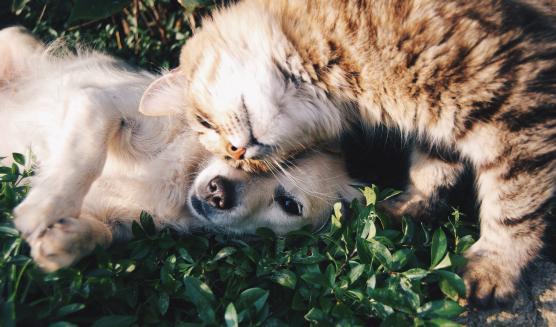1. Please look after your elderly pets. Find a vet practice who knows about elderly pets and who cares. Don’t be afraid to ask around. Your pet has been a member of your family for five, ten, 15 or more years or even more: don’t let them down now, when they most need your help. Find a vet who can prescribe pain relief for their arthritis, treat their medical conditions, get their teeth cleaned.
Every clinic I work at always has a ‘stray’ elderly cat that someone handed in, crippled with arthritis, has horrendous dental pain, and an untreated medical condition, and has likely wandered off due to untreated dementia, or has an owner that doesn’t want them anymore, because they are now elderly and infirm. These ‘family members’ spend their last days in a tiny cage in a vet practice, unwanted, after years of being loved by their family.
Don’t let your pet suffer for years with untreated medical problems, dental problems or untreated pain to the point they have not been able to get up for days or weeks, and then present them for euthanasia. Please do something before it gets this bad. Don’t say ‘they are just getting old’. They have conditions that can be managed and they can be looked after, just like we look after our old people.
I know it’s hard to find them sometimes, but there are professionals out there who care about your elderly pet. There are services that specialise in palliative care and will home visit, there are vets and nurses in clinics who provide senior services for your elderly pet. Do your research and don’t be afraid to ask around. Insist. You know your pet the best: they are a member of your family. Treat them as the special souls they are, into their old age, and give them their senior years and an end of life they deserve.
2. Research worst case scenario vet bills and have some money set aside, or get your pet insured. I know vet bills are expensive. I know they are. It is how it is. But having a pet is a luxury, not a right, and this is the perspective we always aim for. Pets are special, they do cost a lot. Just because we are lucky enough to have a free health service for us, it doesn’t mean our pets have free treatment too. Know in advance what you need to have aside for preventative medicine, as well as emergencies.
It’s an everyday occurrence: an owner not wanting or being able to pay, and consequently the vet not being able to actually do any tests to make any diagnosis, or give the treatment the pet needs. It’s actually the norm in many clinics. It causes us vets and nurses stress, grief and even compassion fatigue: knowing that we could have done better for that animal, but we can't because the owner can’t pay.
Make sure you are prepared. Having an unexpected bill on top of having a sick pet you are worried about is hard, I know it is. But know in advance, so you are prepared.
3. Do your research before you get a pet, from reputable sources. Please don’t just buy a pet on a whim for the children: those children then lose interest and the pet spends the rest of its terrible existence rotting in a tiny hutch or cage. It is a living being, that has feelings and wants and desires and requirements, and like every other creature on this planet, it wants to live the best life it can.
Use all sources; don’t just ask someone down the road who has the same species as you. They might also be doing the wrong thing. It’s common knowledge in exotic pet medicine (anything from rabbits to guinea pigs to rodents, birds, reptiles and fish) that the only thing we ever see is husbandry–related problems. That is: the pet hasn’t been looked after properly, has not had its requirements met, leading to a serious health or behavioural problem. It happens with cats and dogs too. All those husbandry related problems are preventable, by doing the proper research and asking the advice of people who know, or who are experts in that species. Don’t be afraid to ask around – ask experts, people who know what they’re talking about. Do the right thing for your species.
4. See a specialist who knows about your species. Don’t expect your vet down the road to be able to treat your rabbit to a good standard, or your bearded dragon, or your goldfish. Go to someone who knows and cares about doing a good job with these species. Do your research and find a specialist, or at least someone with an interest in that species. Don’t be afraid to ask around: see through the sales spiel and ask for honesty. Know what else is out there and what options you have. You may need to travel a bit further to get the service you need in certain circumstances.
This is the same for wildlife: not all vet practices know or care about wildlife. Find a veterinary practice that does: often these are the ones that are good at exotic species. Veterinary medicine now is at the stage of human medicine is in developing countries. It depends where you go, what you can pay for as to what you get. It is what it is.
Do your research in what vet practice will do the best job for your pet. See a specialist for complicated things and your local first opinion vet for more routine things. As long as both have your pet’s medical history, so everyone knows what’s going on with your pet’s health, it’s a win-win situation.
5. If your pet has a behavioural problem, see a good vet to rule out medical problems first, then see a qualified behaviourist. Anything from your dog ripping up your furniture when you’re out, to your cat peeing in the wardrobe, to your rabbit attacking your ankles, to your parrot feather plucking. Do your research, find a vet or nurse who you can have an honest chat with about all the health problems that might be causing this – you have to rule out health problems first. Go elsewhere if you are not happy with the plan. Don’t feel bad. Your pet needs a health work up to find out what may be causing this.
Once you have ruled out all health problems, then see a qualified, APBC registered behaviourist. Don’t consult your next-door neighbour, or some random internet person on a forum. They might be doing the wrong thing. Go to someone with qualifications. Not just one but two if you want. Shop around. They can look at what is going on and advise what you can do to help your pet. Yes, it is expensive, but the wrong behavioural advice will do more harm than good, leaving your pet confused and anxious and no further forward. Some vets have behavioural qualifications: look them up. They are able to prescribe behavioural medication like anti–anxiety medication, once a normal behaviourist has ruled out everything else you can possibly do without using drugs. Work with them all. They want to see your pet get better. See someone who knows about your species. Don’t be afraid to ask around.
6. Please stop buying from breeders. Animal shelters are full and overflowing, always. In shelters, every year thousands of pets are having their lives ended every day because nobody wants them. Nobody wants them. The breeding industry is fuelling this unwanted pet crisis we have, and often puppy farms are horrendous conditions where the mother is just a machine churning out puppies every year to make money for the breeder. If you have an excuse to not adopt a rescue, such as ‘you want a young animal to start from scratch or make it your own’, or ‘you have children’, please think why you are getting it in the first place. If you are just getting it for yourself and only yourself, that’s not the answer. There are plenty of rescue centres that put a great deal of effort into knowing what kind of household that individual pet will thrive in, and will take a great deal of effort into matching you up with a pet. Please at least look into this before buying a puppy or a kitten from a breeder.
Having a pet is a mutual benefit, it has to benefit you and them: it’s not all about what you 'want' or what breed you 'want'. They’re not status items to add to your personality or your charisma, they are living beings with individual personalities, wants and desires for their life, and like us, want to live the best life they can.
There is a rescue pet out there ideal for you, and they are like every one of us: perfectly imperfect, and they just want a loving and safe existence.
One day in the far future, we hope this unwanted pet crisis will be resolved, but in the meantime, you can help by stopping breeding, or no longer buying from breeders.
7. Please do not buy animals with conformational disorders. We know why you like pugs and French bulldogs; because they look like a baby and you want to baby them. But they spend their entire life struggling to breathe. They’re dogs, all they want is to have a dog’s life: run around in the park, play on a beach, play with their family and other dogs, have a loving safe existence. They are unable to do these things. I know you love them a great deal, but they cannot live a normal life, and spend every moment trying to catch their breath. It’s not cute, it’s tragic. I know breed standards and dog shows are to blame, but it’s a culture we have all created, based on aesthetics, disregards quality of life. Brachycephalic patients (bulldogs, frenchies, pugs, pekings, shih tzus) coming in for airway correction surgery or eye surgery or whatever breed-related problem they are born with that needs correcting, are some of the highest risk and most difficult patients to manage because they cannot breathe normally, causing stress to the whole veterinary team. They need specialist care and the extent of their conformational problem often means they cannot be fully fixed or managed. Please think about this next time you ‘want’ a brachycephalic dog. If the demand stops, this problem will stop. This doesn’t stop at brachycephalics: almost every pedigree breed has problems we have (intentionally or unintentionally) bred into them.
8. Please only have enough pets that you can manage, afford, or provide adequately for. I know it’s tempting to ‘have another one’, or to ‘save that puppy on Gum Tree’, but be aware that you can have too many animals and subsequently not give them a good life, meet their requirements, or cause neglect.
Every vet clinic I know has a crazy cat lady client. It’s not at all funny. Crazy cat ladies are animal hoarders: hoarding is a psychological problem. Cats are solitary animals and acquire all sorts of stress-related problems and health issues when living in proximity with other cats. Often these people have so many cats, they don’t notice when a cat is seriously ill and cannot afford to treat them anyway, leading to a lot of unnecessary suffering. If you have too many animals, or know someone who does, help them out. Animal hoarders need to see a therapist for their problem. Their animals need to be vet checked and gradually distributed to good animal shelters. It’s a long and winding road getting a hoarder to give up hoarding, but take the first step. Ask what you can do to help them. There are people who will help you.
I know a lot of you love your pets a great deal: that is clear to see. I know a lot of you are great at vaccinating, and neutering, deworming and deflea - ing, and we need to keep that up. It makes me so proud to see less and less of the terrible infectious diseases that caused such horrible ways of dying when I was starting out in my career many years ago, because I know that owners must be vaccinating more. That’s great.
But there is still a lot more work that needs to be done. You all have it in you, because I know if you have read all of these four pages, you probably do care a lot. Take that extra step and think about their life from their perspective, and find out everything you can to make to it better, about their health and about welfare.
Don’t trust every source you come across, get some expert opinions and make a plan, re-evaluate at a later date when more knowledge comes through. Do what’s best for you and your pet in the situation you are in: we are all individuals, they are all individuals, we all have individual requirements.
Don’t beat yourself up for making a ‘wrong’ decision: we are all doing the best we can with what we know, and in the future we will know more. But for now, just make sure you know as much as you can before taking that decision.
















